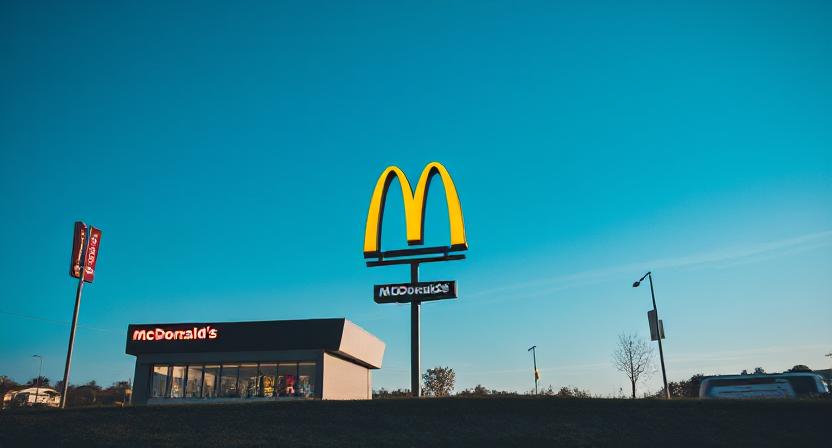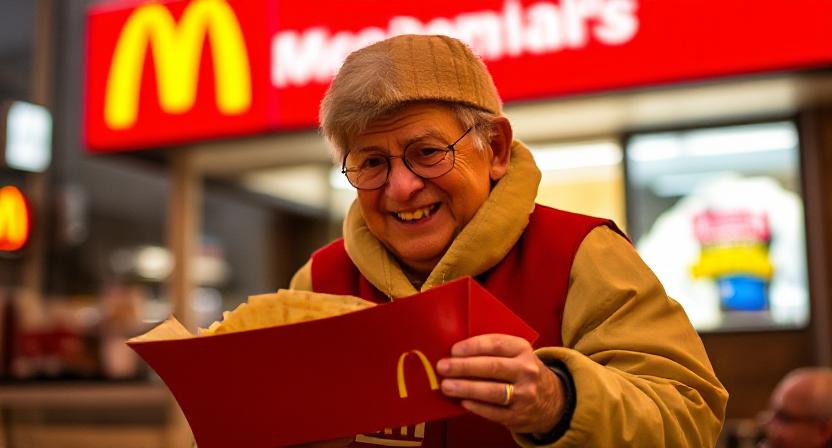The McDonald boycott is gaining national attention. It started on June 24, 2025, and will continue until June 30, 2025. This protest is not just about burgers and fries. It’s about corporate decisions that many people feel are unfair, harmful, or dishonest.
A group called The People’s Union USA is behind the McDonald boycott. The group says the company has gone too far with recent actions, and now it’s time to push back.

Who Started the McDonald Boycott?
The boycott is being led by a man named John Schwarz, founder of The People’s Union USA. His group has also organized boycotts against big names like Amazon, Target, Walmart, and Nestlé.
They call their actions “economic blackouts.” These are short-term protests where people stop spending money at certain businesses to make a point.
For this boycott, the group is asking everyone to avoid McDonald’s for one week.
Why Are People Boycotting McDonald’s?
There are five big reasons behind the McDonald boycott. Each one has sparked strong emotions across the country.
1. McDonald’s Cut Diversity Goals
In early 2025, McDonald’s quietly removed its goals to increase diversity in top leadership. It also dropped a program meant to support diverse suppliers.
Many people saw this as a step backward. Civil rights groups say the company gave up on fairness in hiring and spending. McDonald’s claims it still supports diversity, but critics say actions speak louder than words.
2. Price Increases at the Menu
Another big reason for the McDonald boycott is rising food prices. Customers have noticed that items like burgers, fries, and drinks cost more than ever.
Activists say the price hikes are unfair, especially since McDonald’s continues to make strong profits. Some believe the company is using inflation as an excuse to boost earnings. McDonald’s says that most of its restaurants are run by franchisees who set their own prices.
Even so, customers are frustrated. They feel like they’re being squeezed while the company keeps growing.
3. Tax Loopholes and Avoidance
Protesters also accuse McDonald’s of avoiding taxes. They say the company uses offshore structures and clever accounting to pay less tax than it should.
The claim is that McDonald’s pays less in taxes than some of its lowest-paid workers. That makes people angry. They say the company should give back more to the country that made it rich.
4. Low Wages and Poor Labor Practices
The McDonald boycott also highlights long-standing labor issues. Many workers at McDonald’s earn minimum wage. They work long hours but still struggle to pay their bills.
The company runs most of its restaurants through a franchise model. This setup lets McDonald’s limit its legal responsibility for workers. Protesters say this model blocks efforts to raise wages and form unions.
There have been past complaints about union-busting. Workers who tried to organize have said they faced pushback from franchise owners and the company.
5. Environmental and Supply Chain Problems
The group behind the McDonald boycott says the company has also failed to fix environmental issues. Critics point to problems in its beef supply chain, such as deforestation and poor labor standards.
McDonald’s has promised to improve its supply chain for years. But many feel it hasn’t done enough. They want the company to stop harming the planet and treat workers better around the world.
Black Former Franchisees Join the Fight
One group joining the boycott includes over 40 Black former McDonald’s franchisees. They say the company treated them unfairly for years.
These former owners claim they were pushed into poor locations and given fewer resources than others. Some have filed lawsuits over discrimination and financial harm.
Their support adds a deeper layer to the protest. It’s not just about prices or policies—it’s also about how McDonald’s has treated its own.
What Do Protesters Want?
The McDonald boycott isn’t just a complaint. It comes with clear demands:
- Bring back goals for hiring and promoting diverse leaders.
- Reopen supplier diversity programs.
- Lower menu prices to fair levels.
- Stop using tax loopholes and pay full U.S. taxes.
- Raise wages and allow workers to organize.
- Fix supply chain problems and reduce harm to the environment.
These goals are simple and direct. Protesters say they’re not asking for favors—they’re asking for fairness.
McDonald’s Responds
McDonald’s says it has not done anything wrong. In a public statement, the company said it remains committed to diversity, even if the programs look different now.
It also says it doesn’t set most menu prices—franchise owners do that. On taxes, the company insists it follows the law.
Still, many people feel McDonald’s isn’t doing enough. They want to see real changes, not just words.
Public Response and Early Impact
The McDonald boycott has gone viral on social media. Posts on TikTok, X (formerly Twitter), and Instagram have reached millions. Many are sharing videos of empty McDonald’s parking lots.
It’s still too early to know the full effect. But McDonald’s already reported its first major drop in U.S. sales since 2020.
That dip happened even before the boycott week started. It shows that customer trust may be slipping.
What Does This Mean for You?
If you’re a regular McDonald’s customer, you may be wondering what to do.
Supporters of the McDonald boycott say that taking a break for one week can send a powerful message. They believe that when enough people act together, big companies pay attention.
This protest is also a reminder of how we all shape the market. Where we spend money matters. It shows what we care about.
Final Thoughts
The McDonald boycott is about more than fast food. It’s a demand for better business practices, fair treatment, and real change.
Protesters say McDonald’s has lost its way. They want the company to go back to caring about workers, customers, and communities.
As the boycott continues, one thing is clear—people are paying attention. And if McDonald’s wants to win back trust, it may need to do more than just flip burgers.





